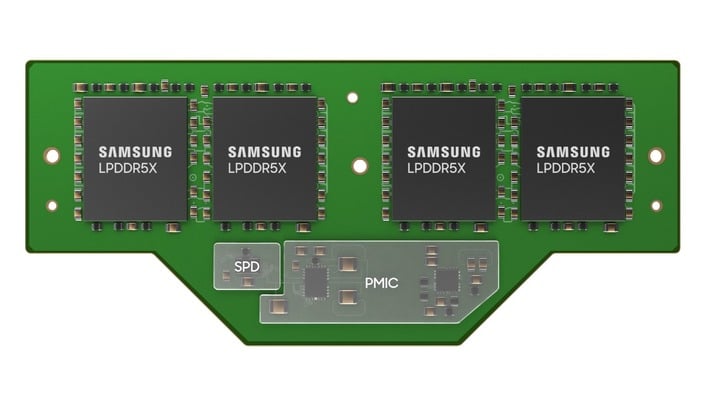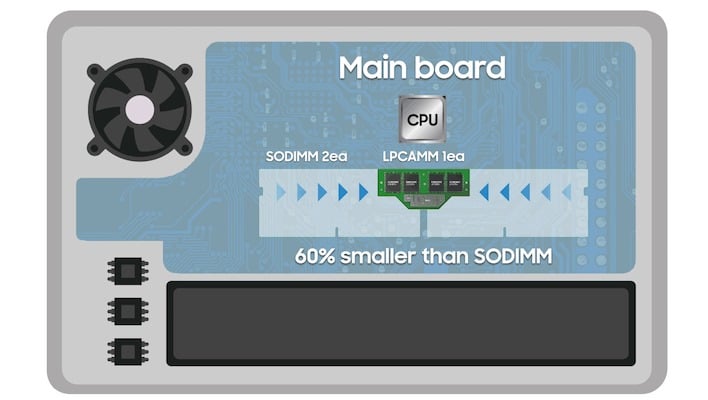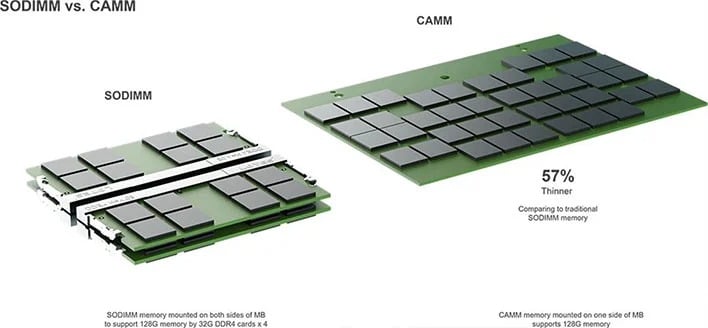Samsung Says Its LPCAMM For Next-Gen PCs Will Transform The DRAM Market

While JEDEC hasn't yet ratified CAMM as a standard, it's all but guaranteed to happen. That's why we're starting to see the first developments around the technology that originate outside of Dell. Samsung just announced that it has developed "LPCAMM" memory modules that are not only much smaller than those proposed in Dell's original design, but which are able to hold up to 128 MB on a single stick while supporting transfer rates up to 7.5 Gbps per pin.

Yes, you understand correctly: that's LPDDR5X-7500. That's a fairly impressive speed even for full-power desktop DIMMs, much less laptop RAM. The secret here is that LPCAMM offers all of the benefits of soldered LPDDR5X memory in a replaceable module using a CAMM-type connector. These compression-based connectors are somewhat similar to those used in LGA processors, and they remove the requirement for bulky slots to hold the RAM in place.
The numbers off the rap sheet from Samsung are convincing. The company claims a space reduction of 60%, a performance increase of 50%, and arguably the most exciting part, a power efficiency gain of 70%. Samsung's press release says that, besides laptops, the new modules could find their way into servers, too. LPDDR5X is very efficient, and that's a huge boon for always-on servers, but it isn't traditionally used there because of the requirement that it be soldered to the board.
Original SODIMM vs. CAMM illustration from Dell.
Obviously, given that they are modular modules, LPCAMMs could circumvent that and allow LPDDR5X to finally find its way into the datacenter. 7.5 Gbps per pin is also quite a bit faster than the typical DDR5 memory used in servers, but of course there's no guarantee that a hypothetical LPCAMM with registered memory would be able to achieve the same kind of speed.
Samsung says that LPCAMM is "set to be tested with next-generation systems with major customers this year," while commercial products will show up next year. It will be fascinating to see who adopts CAMM and who doesn't. Besides AMD and Intel, as well as their various partners, these modules could be beneficial for systems based on Qualcomm and even Apple hardware.


